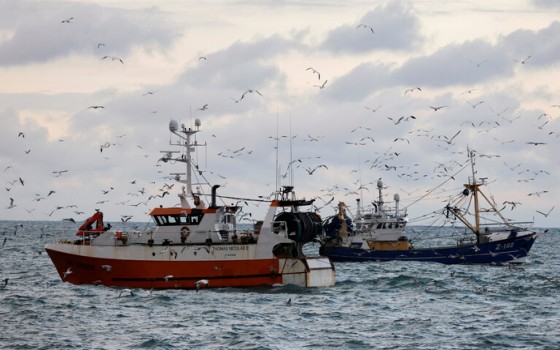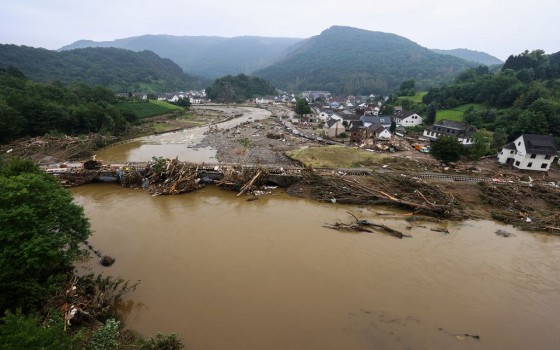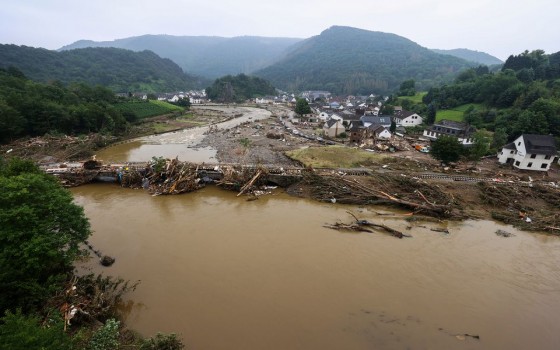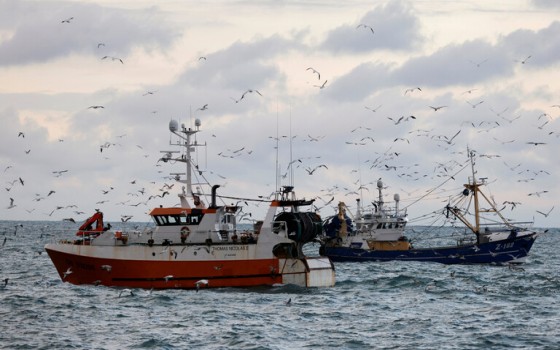
"A siren's ringing" over climate change in a generation at COP29

- Europe and Arabs
- Tuesday , 12 November 2024 9:50 AM GMT
BAKU - NEW YORK: Europe and the Arabs
After a year marked by record-high global temperatures and extreme weather, the Executive Secretary of the United Nations Framework Convention on Climate Change, Simon Steele, called for setting an ambitious new target for climate finance, stressing that this would benefit all countries, including the richest and most powerful.
This came in his address to negotiators at the 29th United Nations Conference of the Parties to the Convention (COP 29), which opened yesterday, Monday, in the Azerbaijani capital, Baku. Steele stressed that rampant climate change affects everyone in the world in one way or another, adding: "Let's get rid of any idea that climate finance is charity." According to the UN Daily News Bulletin
Countries are supposed to seek to set a new annual target for climate finance to replace the $100 billion pledge set in 2009 that expires at the end of the year - which many say is far less than what is needed to deal with rapidly rising air and sea temperatures.
The UNFCCC process, Steele stressed, “is the only place where we can address the escalating climate crisis, and hold each other accountable for action. And we know that it works. Because without it, humanity is heading towards five degrees of global warming.”
‘No country is immune’
Steele gave stark examples of why a new deal on climate finance is needed, stressing that all countries will pay a high price if at least two-thirds of the world’s countries cannot afford to cut their emissions quickly, and that the global economy could collapse entirely if countries are unable to strengthen their supply chains.
“I am as frustrated as anyone that the COP cannot deliver the full transformation that every country needs… [but] here the parties need to agree on a way out of this dilemma. So here in Baku we must agree on a new target for global climate finance,” he said.
The UNFCCC executive secretary hails from the Caribbean nation of Grenada, where the island of Carriacou was almost completely destroyed by Hurricane Beryl last July. With images of devastation in the background, Mr Steele told delegates he was inspired by his island neighbours – like 85-year-old Ms Florence and millions of others around the world – who have become victims of climate change “but are rising again and again”.
‘More than a target’
He stressed that the world could not afford to continue to undermine lives and livelihoods, asking whether delegates wanted their grocery and energy bills to continue to rise, their countries to become economically uncompetitive, and global instability to continue to deepen and cost lives?
If the answer to any of these questions was “no”, he said, a new agreement on climate finance was even more important. He also called for strong reforms to the global financial system, which were essential for countries to effectively address climate impacts. In addition, Steele stressed the crucial role of Article 6 of the Paris Climate Agreement, which enables “carbon trading markets” – a carbon pricing mechanism that will allow governments and non-state actors to trade credits for their greenhouse gas emissions. He urged delegates to complete its implementation as it is essential to meet mitigation targets and prevent global temperature rises from exceeding 1.5 degrees Celsius above pre-industrial levels.
The UNFCCC Executive Secretary also highlighted the importance of adaptation and accountability in his remarks, stressing that countries need clear indicators of progress on adaptation because “you can’t manage what you don’t measure.”
A moment of historic significance
Steele concluded his remarks by recalling the historic significance of COP29. “We cannot leave Baku without a substantive outcome,” he said, encouraging delegates to “step up and deliver.” He called on all countries to demonstrate that global cooperation is “rising to the moment” rather than faltering.
The warmest decade on record
As COP29 opened, the World Meteorological Organization (WMO) released its annual State of the Climate Report for 2024, sounding a “sounding alarm” about a climate that has changed “at an alarming pace” in a single generation, exacerbated and accelerated by ever-increasing levels of greenhouse gas emissions in the atmosphere.
The organization said that the years 2015-2024 will be the “warmest decade on record,” with glacier loss accelerating, sea levels rising and oceans warming, while extreme weather events wreak havoc on communities and economies around the world.
Between January and September 2024, the global average surface air temperature was 1.54°C (with an uncertainty of ±0.13°C) above the pre-industrial average, boosted by the El Niño phenomenon, which also leads to warming, according to an analysis of six international data sets used by WMO.
UN Secretary-General António Guterres said the climate catastrophe “harms health, exacerbates inequalities, hampers sustainable development and undermines the foundations of peace. The most vulnerable are the hardest hit.”
COP29 Agenda
As the climate conference in Baku continues for the next two weeks until 22 November, all eyes will be on the negotiations, hoping to produce concrete commitments, as world leaders, delegates, civil society groups and observers negotiate, network and exchange solutions.
Hundreds of side events are scheduled to take place alongside the official talks. The UN Secretary-General will join the discussions on Tuesday, when he is scheduled to address the Leaders’ Summit and participate in several thematic side events. Observers are expecting a variety of pledges and announcements from governments and non-state actors, addressing issues ranging from reducing methane emissions to organic waste to boosting climate action in tourism. Negotiators are also expected to hammer out the “final text,” a comprehensive agreement that sets out the global approach to tackling climate change, in the closing days of the conference.












No Comments Found